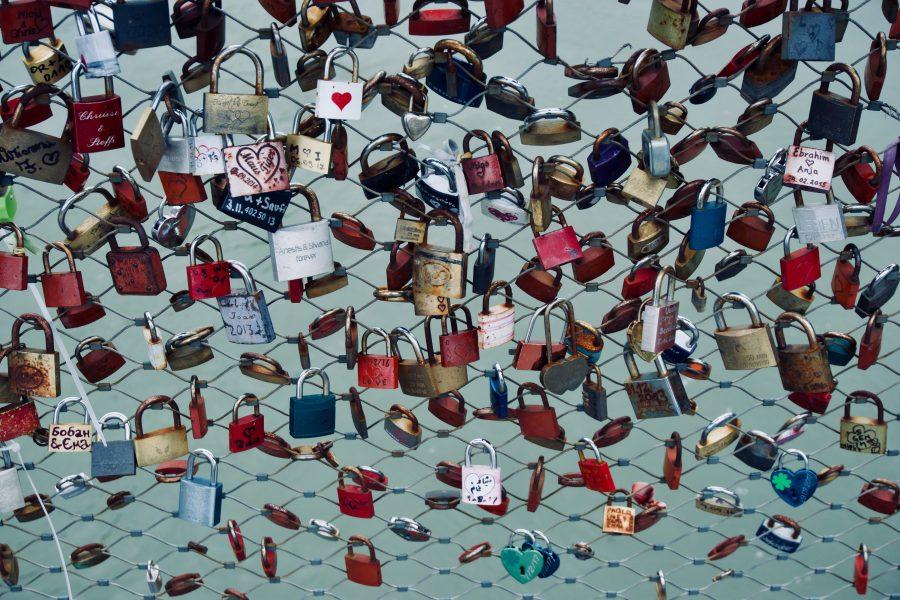In the famous rom-com “How to Lose a Guy in Ten Days,” the female love-interest gives up her future career as a journalist to stay in New York and remain in a relationship with the man of her dreams. In “The Proposal,” the male love-interest marries the female love-interest in order to keep her from being deported just because he wants to date her. In both movies, someone in a romantic relationship is making a huge personal sacrifice to stay with the “love of their life.” We are often told that putting someone before ourselves is the true meaning of love, but where does one draw the line?
In school, we are often taught how to pass college writing programs and solve math problems, but we are never really taught how to seek healthy relationships. If we’re never been exposed to a healthy relationship at home, this task is that much more difficult. I found myself in a codependent relationship this year, and while it is often seen as “cute” to have a guy put a girl before himself, it is quite a different story in real life. Since this relationship ended, I began to do my own research on codependent relationships and was surprised at all of the information I found.
What is a codependent relationship?
A codependent relationship can take many shapes and forms, but the basic gist is that the relationship begins to resemble an addiction. The people involved cannot live without each other and their only sense of identity often comes from the relationship and the moods of their partner. Codependent relationships also include those that are one-sided or abusive (either physically or emotionally). Mental Health America considers codependency a disorder that is learned from dysfunctional family dynamics.
Signs you are in a codependent relationship
While there are many signs of a codependent relationship (which differ depending on the person and their own trauma), here are a few key warnings to look out for:
- One partner wants to be the caretaker to someone who needs “rescuing”
- One or both parties often put each other above themselves in unhealthy ways
- One partner does anything to please their partner
- One or both partners cannot express their own wants and needs in a relationship
- May not get happiness from anything else other than their romantic relationship
- Moods rely entirely on how their partner is feeling
- Maintenance of the relationship is preventing one from participating in their own hobbies and interests
- Low self-esteem
- The relationship is a rebound relationship
Advice if you are in a codependent relationship
If you have a lot of the qualities that make up a codependent relationship, or if you are in a relationship with someone who seems to exhibit the signs of a codependent, consider going to therapy or a support group in order to create a healthy relationship again. One of my biggest regrets in my own codependent relationship was not doing my research and seeking help in dealing with someone who was more predisposed to having this kind of unhealthy relationship. It cannot hurt to try and reach out and have discussions about this with your partner as well. They may not realize that they are exhibiting these qualities, and the best way to get through it could be open communication and a willingness to set boundaries for both parties. If this does not work, the only solution would be to terminate the relationship and focus on yourself and your past trauma to keep you from entering a codependent relationship again. In the end, codependent relationships are not healthy and should be worked on in some way, whether that be through therapy or through breaking up the relationship.
Conclusion
When my ex broke up with me, I was constantly worried for his future relationships, and it took me a long time to get used to the idea that this was simply not (and never was) my own problem. While therapy and support groups can help you maintain a healthy relationship despite the trauma of the past, it is important to remember that if your partner is not willing to get the help they need, it is not your job to fix them. Knowing that I played a role in my codependent relationship too, I have since worked through my own issues and have begun going to therapy. This experience has allowed me to recognize what codependent relationships were, and being aware of these red flags will help me avoid these unhealthy relationships. Codependent relationships don’t have to be forever, and like me, you can get through it, too!









JudyAnn Hurst • Mar 11, 2019 at 3:03 pm
I am in a relationship with someone who is on the Autism Spectrum. He is also an adult child of an alcoholic. I am trying to adjust my expectations because he needs me to be very dir when communication…. a little exhausting. I was going to file for divorce when I thought his issues were just ACOA issues. I am conflicted now that I know he doesn’t get social verbal cues, etc. I have been in recovery for over 30 years, Al-Anon and ACOA mostly. To stay with someone I love who has these limitations is codependent?